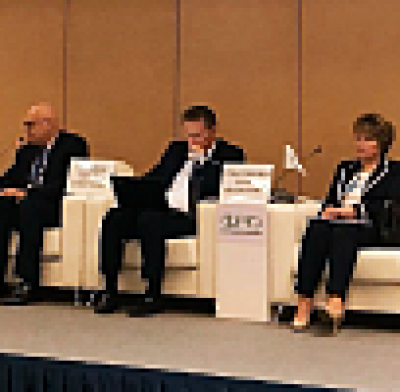XXI All-Russian Conference "State regulation in the field of circulation of medicines and medical devices" — an open dialogue between regulators and business. Representatives of the Association of Russian pharmaceutical manufacturers at a round table with experts from the Ministry of Health, the Federal Antimonopoly Service and Federal Service for Surveillance in Healthcare (Roszdravnadzor) discussed the registration and control of prices for medicines.
In particular, the coordination and carrying out of the economic analysis of the prices, rules and techniques. The resolution of the Government of the Russian Federation No. 1207 of October 8, 2018 “On Amendments to the Decisions of the Government of the Russian Federation of October 29, 2010 N 865 of September 15 of N 979” and the new legislative act, which was passed in the second reading, erupted a heated discussion. It provides for a decrease in prices for medicines in 2019-2020, as well as regulates the process of their registration. Nadezhda Sharavskaya, Deputy Head of the FAS (Federal Antimonopoly Service) of Russia, commenting on the innovations, noted that “price registration has been simplified and accelerated. Became more loyal. The declarative principle applies to reference drugs. Russian and imported generics now do not need to be compared with prices in other countries, and the price can not be higher than the existing one and the registered one ”.
In general, the pharmaceutical community is ready for new requirements. But there are still a lot of questions. Namely, what are the expected deadlines for the re-registration procedure, at what price to sell the remainder of the products, how will the re-registration of the price go if the price in the reference country falls, and the process of mandatory registration is not completed yet?
The ARPM general director noted that “the degree of optimism among businesses in implementing this draft law is not as high as that of regulators. We understand that there are regulations, and there is their law implementation. With all the questions and difficulties, we, of course, will ask the regulators. ”
Also at the conference, Victor Dmitriev raised the topic of the “quality” of the list of vital and essential drugs. Often in authorities, a look at the inclusion or exclusion of a drug is the opposite, and companies become hostages of the situation. If the drug is on the list, then the manufacturer does not have the right to raise the price, and accordingly, cannot plan the profit, which is necessary for further development. Including profit for the achievement of indicators which are put in "Pharma 2030". They cannot be reached without a financial resource. And the necessary funds can be obtained mainly from the sale of drugs. “We would like the regulators to have an understanding of the need for a balance of interests between patients and manufacturers,” the expert noted.
Another hot topic is designated as “44-FL of 04/05/2013: what is wrong with drug purchases”? Representatives of the Interfactional Working Group of the State Duma on the improvement of legislation in the field of drug provision of citizens and circulation of medicines emphasize that the main thing is the availability of medicines to the public. They considered the possibility of creating a new state procurement system and an algorithm for participating in large manufacturers’ tenders, bypassing the chain of intermediaries.
However, excessive price pressure, which the business is experiencing, leads to the withdrawal from the market of demanded drugs, as production becomes unprofitable, and sometimes even detrimental. So, according to the director of the Department of drug supply and regulation of the circulation of medical products of the Ministry of Health, Elena Maksimkina, the companies warned about the letup of the supply of 700 medicines in the coming year.
Section participants did not disregard labeling issues. The conference summed up the intermediate results of the drug labeling experiment and the further implementation of the Drug Movement Monitoring (DMM) system. Considered technical, organizational and legal aspects. There are a lot of questions for business in this area, and there is less and less time left. Recall that from October 2019, labeling for drugs from the list of high-cost nosologies will become mandatory, and the law will enter into full force from January 1, 2020.

